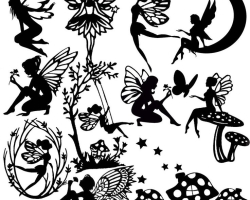Basque Country (Baskonia or Eskaudi) is the most mysterious region of Spain. Basques are not like neighbors either culture, language, or appearance.
Content
- Basque Country on the map of Spain
- How to get to the country of Basque?
- What do you need to know about the rest in the Basque Country?
- The main resorts of the Basque Country
- The attractions of the Basque Country
- Costa Basque beaches
- The kitchen of the Basque country
- Video. San Sebastian, Basque Country
- Video. National dancing of the Basque Country
- Video. Songs of the Basque Country
Basque Country on the map of Spain
Baskonia is located in the north-east of Spain, on the shores of the Bay of the Bay (or the Cantabrian Sea). Historians are still arguing which language and cultural groups are Basque as an ethnic group, since at the genetic level of the Basque they are very different from other representatives of Europe.

According to one version, the Basques came to the territory of modern Spain from the Caucasus, and retained their identity to the present day, thanks to a secluded life in the mountain villages of the Basque mountains. Many words in the Basque language do not have related forms in any known language of the planet.

In a word, Basques are a strange and mysterious tribe, their history is full of secrets, and the culture is original and not like any other people in the world. The largest cities of the region: Bilbao, San Sebastian and Vitoria-Gastiz-the capital of the Basque country.

It should be noted that the historical boundaries of the Basque country go beyond the borders of Spain and capture part of Aquitaine - the southern region of France, including the city of Biarritis. But in this article we will only talk about the Spanish basas.

How to get to the country of Basque?
- There are no direct flights from Russia to the country of Basque. The easiest way to get on an airplane from Russia is to fly to Madrid or Barcelona, \u200b\u200bthen transfer to internal airlines or get to the Renfe high -speed train. Internal airports are in Bilbao, San Sebastian and Vitoria-Hasteiz.

- From other European countries, getting to Baskia is a little easier, since many European airlines are directly flying to Bilbao, a full list of airlines can be viewed here

- The second option to get to the country of Basque is high -speed European highways. The road network is perfectly developed here, by car you can get to any city in the region, paid high-speed highways connect Basqueonia with all over Europe across the border with France in the northeast.

What do you need to know about the rest in the Basque Country?
The climate of Baskonia differs from other resort regions of Spain in the same way as the Basques themselves. The summer temperature on the coast is rarely higher than +25 heat, and in Bilbao and in the internal mountainous areas, even lower-in July, the average temperature is kept around 20-21 degrees of heat. But the warm waters of the Gulf Stream allow the sea to warm up faster than on the beaches of the Mediterranean.

The Basque Country is a mountainous area. The beaches here are cut by cliffs, cozy sandy bays often alternate with steep high shores. There are more vegetation and greens than in other regions of continental Spain ( Costa Brava, Costa of Dranda, Costa Blanca, Costa del Sol), but fewer historical monuments of the era of the Romans, Arabs and the early Middle Ages - the local landscape did not particularly attract the conquerors and was not too suitable for the construction of monumental buildings.

But this does not mean at all that the Basque Country is not interesting. Here, excessly enough of their ancient structures, excellent architecture, amazing in the beauty of landscapes, excellent beaches and original cuisine.

Another feature of Baskonia is that this region is not too promoted among tourists. There are fewer hotels, visitors often stop in rented apartments. There are fewer tourist advertising in the subway and stores, you rarely find excursion bureau on the streets.

Travel agencies in Russia most often did not even hear about the country of Basque. Therefore, the trip, most likely, will have to be organized independently, and the preparation will take more time than usual. But all your chores will more than pay off your impressions of the vacation in this amazing place.

The main resorts of the Basque Country
The best beaches of the Basque Country are located on the coast of Costa Vasca in the area of \u200b\u200bGipuska near San Sebastian. This is the coast of the Atlantic Ocean, where waves are more often and higher than in the Mediterranean Sea. It is not too hot here, cloudy days happen even in July and August, so the Basque Country is ideal for those who are contraindicated or simply do not like the sole sun.

Bilbao
Bilbao is completely atypical for Spain the city. With his architecture, it often resembles Amsterdam or Stockholm, but not a sultry Spanish city. Typical weather in Bilbao is also absolutely not suitable for templates that we are used to the word “Spain”.

In Bilbao, it is almost always cloudy and cloudy, often the embankments are dug in the fog, and even in the middle of the summer there are days when instead of a bright beach outfit you have to pull a jacket and waterproof shoes.

But frequent and abundant rains make the landscapes of the Basque country surprisingly bright: juicy lawns and forests do not go into any comparison with palm trees and lawns buried in the sun Andalusia or Valencia.

Huggenheim Museum
Guggenheim Museum Bilbao-one of the branches of the Museum of Modern Art of the famous New York collector and philanthropist Solomon Guggenheim.

The building has a very unusual appearance, its exposition is just as unusual, which includes the work of modern avant -garde: Andy Warhol, Iva Klein, Kuning and others.

The space around the museum is also interesting. On the one hand, the famous sculpture of a giant spider was installed on the embankment, on the other hand, a huge flower puppy of Jeff Kuns, near which tourists love to take pictures.

The natural continuation of the museum complex is the Puente de la-Salve bridge built by Daniel Buren as part of the world project “Red Arks”.

Metro Fosteritos
Bilbao Metro (here it is affectionately called Fosteritos-by the name of the architect-creator)-another design object of a national scale along with the building of the Guggenheim Museum. Norman Foster himself worked on the subway project - the famous English architect and honorary member of the Academies of the Arts of many countries, including Russia. Therefore, metro stations are an indispensable must See for any tourist in Bilbao.

Multiplultural center Aloldig
La-Alder is a real architectural masterpiece of the famous French industrial designer Philippe Stark. Previously, in this building of the beginning of the 20th century there was a wine warehouse, but now only the outer walls remained from it, behind the facade of which a ultra-modern structure of glass and concrete is hiding. There is an entertainment center with cinemas, restaurants, a pool, a feintess center, a huge library and other entertainments.

Biscay Ministry of Health
The building of the Biscay Ministry of Health (the Baskonia district, whose capital is Bilbao) reminds anything, but not a boring state institution. Of course, you can’t get inside, but even for the sake of inspection, it is worth finding this masterpiece on Alameda Recalde 39. Against the buildings, amazing avant -garde photos are obtained.

Subi-Suri bridge
A very unusual bridge, which once again confirms the glory of Bilbao as a city of avant -garde architecture. The flight of the bridge has no supports and is kept exclusively on the original suspension structure. The pedestrian zone of the bridge is paved with glass transparent tiles, which looks very stylish, but very impractical for the city budget (the tiles have to be changed too often). The bridge is very popular among local lovers at night.

Art Museum
The extensive collection of the museum has over 7000 exhibits. The earliest are carved sculptures made of wood of the XII century. In the collection of painting there are canvases of Van Gogh, Francia Goya, El Greco, Van Dyck and many others, including autumn of interesting and original Basque painters. Very interesting modern exhibitions are held in the museum.

The area of \u200b\u200bEnsance
Ensanche (Ensanche) is the area of \u200b\u200bthe beginning of the 19th century, in which the building of the concordia station and the palace of the deputation deserve attention. The main street of the district is Grand Via Avenue, on which there are many branded stores of famous clothing brands.

Old city of Casco Viekho
Casco Viejo - the oldest Bilbao district - consists of only 7 streets because until the beginning of the 19th century Bilbao was an inconspicuous fishing village. There are a lot of beggars, private shops and lovely small cafes in which excellent Pinchos (local snacks) are served under the glass of chakoli (local wine). In Bilbao there is a funny word “Chikitear”, which in translation means “roaming local brewers and trying chakoli with Pincos”.

La Ribera market
La Ribera's indoor grocery market is the largest indoor European market. Here you can try all local dishes and enjoy a special atmosphere of small town trade: a variety of smells, noisy local merchants, sedate buyers and curious tourists. It is especially interesting to take a walk on the market in the morning, when all the city housewives flow here to buy the latest food for lunch.

Calsadas-de-Malon
Calsadas-de-Malon is a staircase of 312 steps, which goes to the Basilica of the Belonia Virgin on the top of the Echebarria hill. This is rather not a staircase, but a whole street, constantly leading steeply up. Along it, pretty old houses are located, and with each turn, before my eyes, an increasingly amazing view of the city opens. The basilica of the Virgin Begonia is dedicated to the Bogonian Mother of God - the old patroness of the country of the Basque.

Gothic cathedral Santiago
The Cathedral of St. Jacob is perhaps the only building preserved in the city since the 13th century. Actually, at that time the city was not at all in sight, and the cathedral was built as part of the popular route of the pilgrims of medieval Spain Santiago de Comporalla.

Euskaldun Palace
The Palace of Euscaldun (Palace of Congresses and Music) is a new theater building in Bilbao, completely equipped for the most difficult modern productions in technical terms. Meetings of the local parliament are also held here. The palace was twice recognized as the best work of architecture - in 2001 it became the most interesting architectural solution in Spain, and in 2003 the International Association declared it the best parliamentary building in the world. On the third floor of the building is the best restaurant in the city, awarded Michelin stars.

Bilbao Marine Museum
This is a very interesting museum for inspection, located in the old port docks of the Euscaldun area. The exposition includes sea vessels characteristic of different eras of the history of the Basque. All ships are available for inspection. Also in the museum you can see ancient security letters, trading contracts, coins and sea cards. You can try yourself in the role of a sailor, learn how to set a sail, knit a sea knot and climb rope ramps.

Bilbao beaches
In the suburbs of Bilbao Gocho (Getxo) there are two popular city beaches Las Arenas and Ereaga. The Bilbao Center with the suburbs connects the metro, so, despite some remoteness, it will not be difficult to get to the beaches. The best Bilbao beach is in the suburbs of the Prets (40 minutes on the metro)-it is believed that this area is very popular among wealthy citizens because of their excellent fish restaurants.

San Sebastian
San Sebastian is a rather old settlement, the first buildings date back to the XII century. In the Middle Ages, it was a noticeable trading port, but the city was very badly damaged during the war with Napoleon: there were practically no pre -war buildings left here, all the buildings were erased from the face of the earth, so in the 19th century it was in complete decline.

The revival of San Sebastian occurred at the beginning of the 20th century, when the Queen of Spain Isabella decided to arrange her country residence here. Thanks to this, San Sebastian became very fashionable as a place of rest in aristocratic circles, and gradually returned its former glory.

In all the architecture of San Sebastian, analogies with Paris are traced, since during the development of the city architects answered primarily the tastes of the Spanish crown and the court nobility. San Sebastian is an amazingly beautiful city, which, unfortunately, is still underestimated by tourists.

Mount Monte Urgul
Monte-Urgull Mountain It is notable for the fact that at its top there is a dilapidated Castillo de Santa Cruz castle (local residents call his la-Mota), which crings the statue of Christ. Currently, in the walls of the castle there is a historical museum of San Sebastian, and the castle itself is surrounded by a small park with walking alleys and observation sites.

Street August 31
31 Agosto -The only street surviving in the war with Napoleon in the whole San Sebastian. In memory of those events on the street annually, a parade of local residents in historical costumes and the reconstruction of those distant events are held.

Monastery San Telmo
Now in the former monastery of the 15th century is located museum San Telmo (Museo de San Telmo), the exposition of which includes works of art, as well as archaeological finds related to the history of the region.

Santa Maria del Coro
Church of Santa Maria del Coro (Iglesia de Santa Maria del Coro) dates back to the XVIII century, built in the center of the old city on the site of the same destroyed medieval church.

The desk of the Vieha
Parte Vieja (Parte Vieja) -The historical quarter of San Sebastian, the classic development quarter of the XVIII-XIX centuries, in which there are many cozy cafes and small stores. In the center of the quarter is the main square of the city - constitution Square (Plaza de la Constitución)on which you can see the building of the former town hall.

There is one curious detail: the municipality of the city bought the balconies of the surrounding houses from the residents, whose windows overlook the square; On the days of city holidays, when colorful parades and performances are held on the square, balconies are sold to everyone as the best spectator places on the show.

Bay La Koncha
La Concha beach (Playa de la Concha) It is considered one of the best beaches in Europe. It is to him that San Sebastian owes his revival. This is a picturesque bay that forms the correct shape of a circle, in the center of which the green island of Santa Clara rises. The Queen of Spain Isabella, assessing the beauty of the landscape, at the beginning of the 20th century ordered to build royal baths here. La ending for a long time was considered a beach for the elect.

Cathedral of a good shepherd
Cathedral of Buen Pastor. -The main cathedral of San Sebastian, the largest church in Baskonia. Several local relics are stored here, and regular services are held, which are worth going for for the sake of beautiful organ music.

Palace Miramar
Palace Miramar (Palacio de Miramar) - A copy of a typical English castle built for Queen Maria Christina as a summer residence. The palace is open to visitors by tourists.

Kristina-Enea park
Park "Christina Enea" (Cristina Enea) - This is one of the most beautiful and large parks in Spain. In the 19th century, one of the local nobles gave the city its lands with the only condition - they should be defeated by the park, and nothing more.

Maria-Christine bridge
Mary Cristina Bridge (Puente de Maria Cristina) - The construction of the XIX century, which traces a clear imitation of the French architecture of that time. The obelisks along the edges of the bridge are reminiscent of sculptures on the bridge of Alexander III in Paris, named after one of the Russian emperors.

Vitoria-hastiz
Vitoria-Gasteiz is the capital of Baskonia. It is located not on the coast, but in the depths of the mainland. Vitoria is the Spanish official name of the city, and the Basques call their capital Gasteiz. The city has been leading its history since the 12th century, although according to some sources, the first settlement here was founded back in 585.

The main attractions of Vitoria-Gastez are located in the Old City, and in the bulk these are objects of religious significance:
- Medieval Cathedral of Vitoria (Catedral de Vitoria)
The Church of the Holy Apostle Peter (Iglesia de San Pedro Apostol) of the XIV century - The Church of the Holy Archangel Michael (Iglesia de San Miguel Arcangel) of the XIV century
- The Church of St. Prudence (Basilica de San Prudencio de Armentia) of the 12th century
- The Church of the Holy Martyr Vikenty (Iglesia de San Vicente Martyr) XV-XVI centuries
- The Monastery of the Holy Cross (Convento de Santa Cruz) of the 16th century
- Monastery of St. Anthony (Convento de San Antonio) of the XVII century

From other attractions, the following can be distinguished:
- Del Cordon House is the House of a merchant of the 15th century, some period of the Spanish kings in the country of the Basques, and now the museum exposition, which tells about the life and history of the Basque

- Palace of Akhuria Anea (Palacio de Ajuria-Eenea)-Basque Parliament building

- The Bask Museum of Contemporary Art (Museo Vasco de Arte Contemporaneo) is an exhibition of works by contemporary artists of Baskonia and recognized classics of Spain (Picasso, Dali, Miro, Peres), as well as educational center, library and city archive

- The Square of the Virgin Mary Blanca (Plaza de la Virgen Blanca) is the main Square of Vitoria-Gasteiz, which establishes the Battle of Battle of Vitoria during the War of Independence in 1813

The attractions of the Basque Country
Biosphere Reserve Urdaybay
The natural reserve Urdaibai is located between San Sebastian and Bilbao. On the territory of Urdaybay, Termnik is located, which was described in the picture of the same name by the famous Pablo Picasso - a city completely destroyed by the Nazis and became a national symbol of the Basque. Butron castle will take us to the romantic 19th century. The chapel of San Huang-de-Gastelugache, to which a staircase of 231 steps leads, will remind you of biblical traditions (according to legend, there was a John-wretrous). Oma will immerse the forest into the space of the Land Art, a fashion trend in art, turning natural objects into a fairy-tale world.

Burmeo
Burmeo is one of the main ports of Baskonia, a typical fishing town with original architecture and atmosphere. Here they catch the famous white tuna, which is found only on the Atlantic coast. The date of the foundation of Bermeo is dated to the time of Roman rule, although local legends say that it was founded immediately after the World Flood. In Burmeo, it is certainly worth going to see the real Basque City, which perfectly retained its antiquity and not touched by the destructive wars of Napoleon and Franco.

Mundaka
Mundaka is another charming town on the Basque Costa. Translated from the old Scottish language, Mundak means "pure water." According to legend, the city was founded by the Scots who were saved from the persecution of the English crown. Although, there is evidence of a person’s earlier presence in these places: in the cave Santimamin (Santimamiñe), cave paintings were found from the Paleolithic time, and the remnants of the ancient Roman road speak of the presence of the Romans.

Local residents also believe that there were a lot of viking in Mundak, since local residents stand out against the background of the rest of the Basque with their growth, blue eyes and blond hair. Mundaka is very popular among surfers for the waves characteristic only for this resort.

San Juan de Gastelugache
San Juan de Gaztelugatxe is an ancient Christian chapel, to which an unusual stone bridge of 241 steps leads. The place here is truly fantastic, thanks to the surrounding landscapes and exciting history.

The Order of the Templars was located here, the island was subjected to the raids of one of the most famous pirates in the history of Frnesis Drake, he was attacked by the kings of Castile and Knights La Roshel, here they languished in the basements and accepted the martyrdom of the victim of the Inquisition in the Middle Ages. On one of the steps of the staircase, an antique fingerprint of the foot is preserved, which, according to legend, belongs to the John-Winter himself (San Juan).

Caves Poslagua
According to the Spaniards, the Kueva de Pozalagua cave is the most beautiful corner of Spain in 2013 (according to the results of the annual survey of the Guía Repsol national edition). This is a unique natural karst formation, a dotted set of stalactites of an unusual shape and beauty. Currently, concerts are often conducted under the arches of the cave, since the acoustics of the cave makes the sounds of music truly bewitching.

Loyisaga tower
Loyisaga is a medieval tower in the village of Conseehuelo de Galdamam, named after the first owner. The place is notable for the fact that now there is a private museum of old Rolls-Royce. This is a truly luxurious collection that, in addition to machines, contains antiques, ceremonial carriages and crews of different eras. The museum has been awarded the highest professional awards in the world.

Forest OMA
Forest Oma (Pintado de Oma) is a fairy tale created by the hands of a person. Augustin Ibarollah, a local sculptor and artist, spent several years here in the 1980s, creating works in the style of land art. The forest is fraught with many riddles, as some work can be seen in its entirety, only standing at a certain angle. For supervisory visitors, the artist placed signs on the ground by which you can find the very cherished points of view.

Cave Santimaminin
Cave Santimami win is the most important archaeological find of Baskonia, in which the earliest rock drawings were found in the interval from the Middle Paleolithic to the Iron Age. Most of the images are dated to the late Paleolithic, the era of the Mousterian culture, characteristic of primitive hunters of Polodnica Europe.

Mount Monte Gorbea
Monte Gorbea's natural park according to historians has existed for more than 100 million years. This is a truly mystical place where the crowns of centuries -old trees are bizarre, the old trunks are abundantly overgrown with moss and lichen, and forest lowlands often envelops thick fog, which gives the forest a mystical and frightening look.

Many rare animals and plants have been found here, since 1994 the forest has been assigned the official status of a reserve protected by law. On the territory of the natural park for those who wish, night and day safari are held.

Costa Basque beaches
- La Koncha beach (Playa de la Concha) - One of the best in Europe; a wide band of sand and a gentle entrance; closed bay where there are no waves; equipped with everything necessary; In the royal baths, the modern center of thalassotherapy operates; Located within San Sebastian, so the entire urban infrastructure is within walking distance

- Surriola beach (La Zurriola) -located on the outskirts of San Sebastian, at some distance from the city; A lot of surfers, there is a surf school; Suitable only for experienced swimmers due to strong waves; Infrastructure (cafes, beach equipment, shops, etc.); Recently, nudists have been popular, which is not suitable for some tourists

- Playa Ondaretta -located in San Sebastian, well suited for family vacations; Sandy shore, gentle entrance, beach volleyball sites, wooden bridges, cafes

- Sukarrieta beaches and lag (Laga) -They are in Mundak, very popular among surfers because of the unique “left” wave, which is found only here. Assigned by everything necessary, several hotels, camping, cafes and restaurants are located nearby.

- Hondarribia beach (Hondarribia) - the beach located in the town of the same name; well suited for unhurried family holidays, equipped with everything necessary; Cities have pleasant walks - the old medieval center, Gothic churches, Charles V Castle, as well as port embankments with multi -colored houses are very beautiful

- Sarautz beach (Zarautz) - Another favorite surfer beach that is not suitable for ordinary beach holidays

- RIA de Gernika (RIA de Gernika) - Cozy bay with wide sandy beaches, located in the city

- A few more small cities whose beaches can attract your attention, and ancient streets will be interesting for walking: Leiketio (Leiketio), Sumaia (Sumaia), Getaria (Getaria)

The kitchen of the Basque country
The Basque kitchen is considered one of the most refined in the world. It is characterized by the simplicity of recipes and the high quality of products used in cooking. There are many restaurants marked by the stars of Michelin, only in one San Sebastian with a population of no more than 300 thousand inhabitants of such restaurants are four.

The most characteristic dishes of Baskonia:
- Marmitako (Marmitako) - tuna soup with the addition of potatoes, tomatoes, garlic and sharp seasonings
- Cheese Idiazábal (Idiazábal) - Solid cheese, in the preparation of which only raw sheep milk is used
- Pinchos (Pintxos) - a slice of bread with a diverse snack mounted on it, an analogue of Tapas on the Mediterranean coast of Spain
- Chuleton de Vaca. - beef steak with blood, grilled with an abundance of seasonings

- Chipirones (Chipirones) - Small squid and karakatics, often cooked in their own ink
- Bacalo (Bacalo) - Various cod dishes prepared in a variety of ways: in sauce, with vegetables, dried on coals and other options
- Sukalki - Mat stew with vegetables and seasonings
- Cuajada (Cuajada) - Milk dessert with honey and nuts
- Of the drinks are popular apple cider "Sadargoa", white dry wine "Chakkoli", berry liqueurs "Pacharan"







